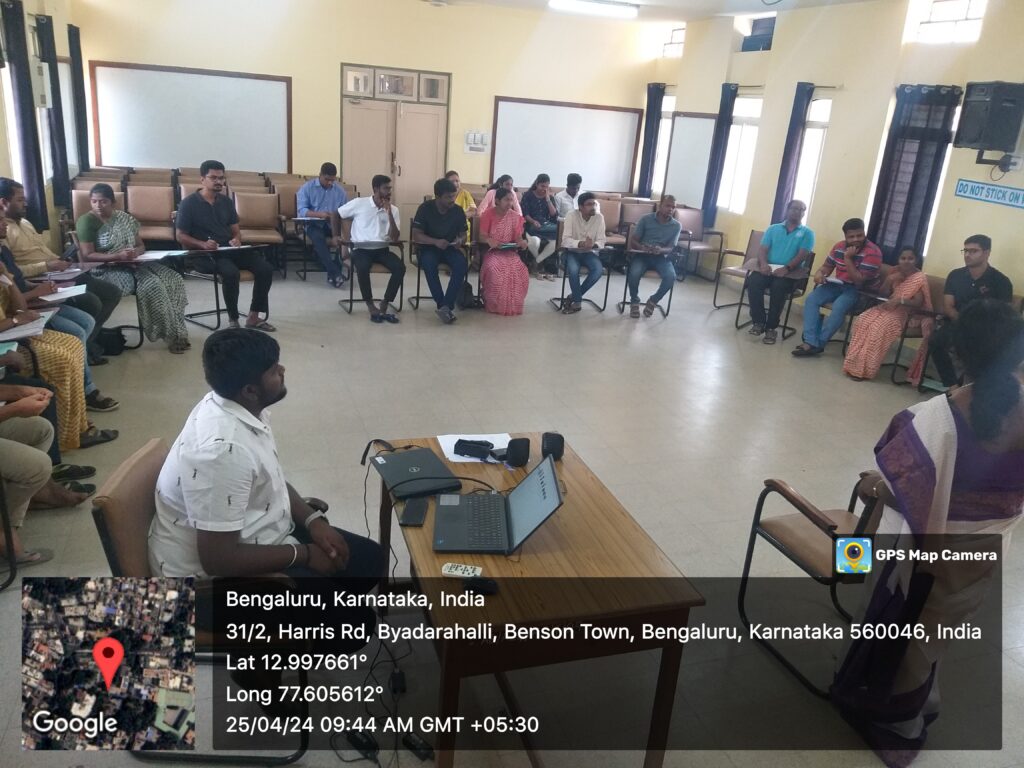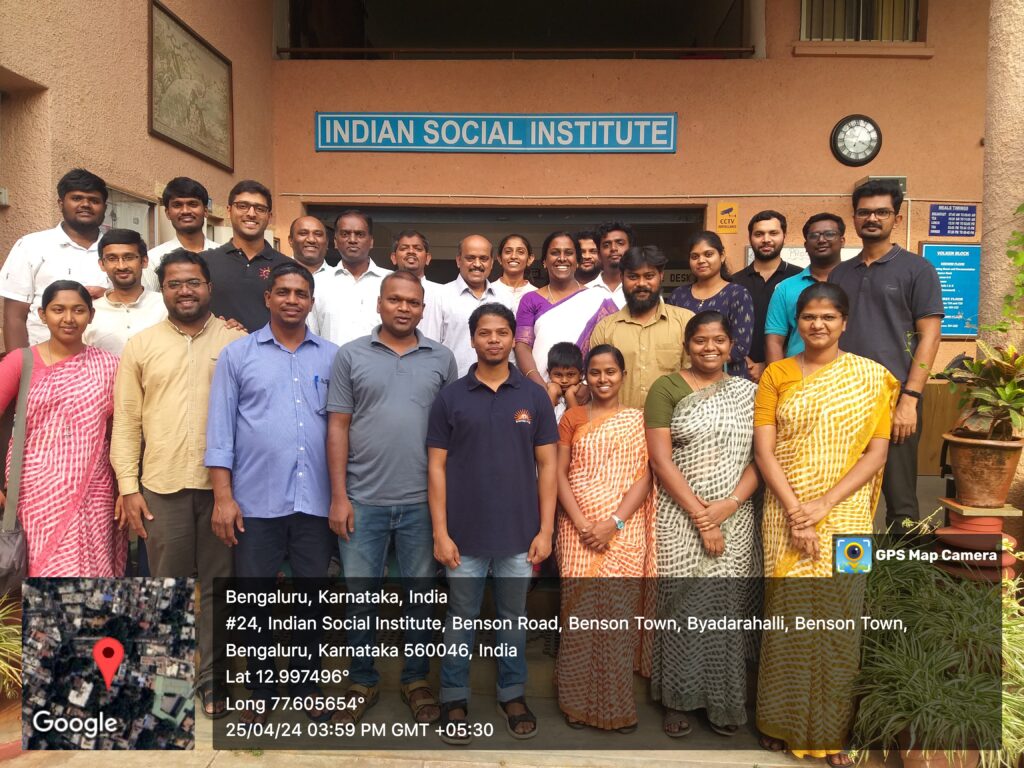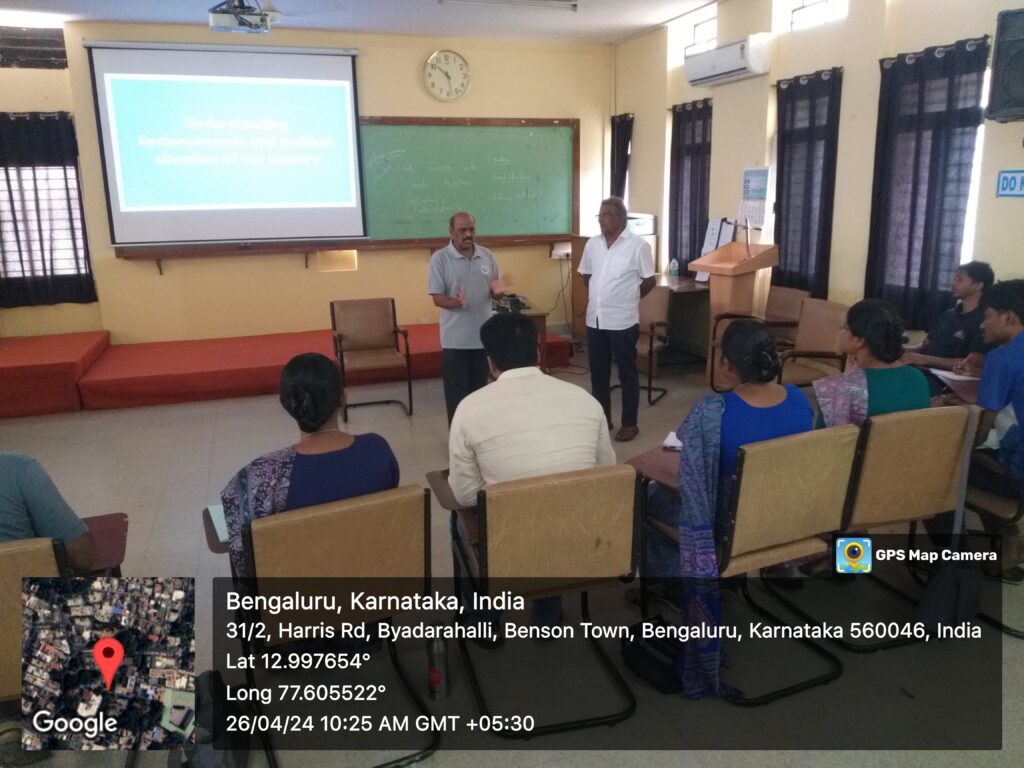


Programme: Socio-cultural Analysis
Date: 15-27 April, 2024
17 Youth become active citizens to bring ‘Social Justice’
The Socio-cultural Analysis helped the participants to go through a self-transformation and become active participants in society. Stepfan, a participant said, I will educate people about their rights. I will be the voice for the voiceless in addressing their issues”. Manjunath M also expressed, “I am convinced, I must not be a silent spectator but be a powerful voice for Justice. I must be an agent of social change”.
The 17 active participants developed new perspectives about the society through knowledge, critical thinking and analytic tools. They went through socio, economic, political, and cultural analysis on various issues such as poverty, caste, gender, religion, media, migrants, environment and other burning issues of society. They were thrown open to the social realities in a slum to interact with the people and empathise with them. The participants conducted sports to children and gave prizes. This brought a great joy in them. Overall, the participants expressed that they deeply became aware of the caste, gender and religion inequalities. These inequalities continue to exist today because of the ‘natural order’ system created by the dominant, which has become part of the structures. In order to fight against these structural inequalities, one has to be empowered with human dignity and equal opportunity with rights. Mr Edwin, resource person gave a testimony of a dalit girl, who boldy said, “I am not untouchable but I am don’t touchable”. The girl clearly showed to the society that she is equal in every way. Today we live in a modern society where technology and science has fast grown but the mindset of people deeply embedded with caste identity. A participant raised a question, when can we see a society without caste or class? This question put everybody into self-reflection, asking themselves am I ready to change, respect others equally without any such discriminations.
The participants understood that the change should begin with oneself. Their eyes were opened to many social problems such as migrants, transgenders, environmental concerns and others. Anitha A, a participant expressed, I am convinced, first I must change, my perspectives must change. Then my actions will change.
Nibisha, another participant said, “The social analysis helped me reflect and get into the deep realities of the society. There are times I fail to become aware of these social problems. We must value human dignity and respect for everyone”.
The participants built a strong consciousness to address caste, gender discriminations and Media biases by countering it. Fr Stephen SJ helped the participants understand the Media from a critical point of view. He said, Media is powerful which shapes the opinion of the people. He told by effectively using media it is possible to bring social change.
A participant said, I feel that new Media (social media) could be effectively used as a tool of Social Reform. For instance, encountering fake news of whatsapp university is an example.
Shawn Roy D’Souza the participant said, “By walking with the poor and the youth I want to bring change”
Another participant said, “I want to speak about the values in society. Because today educators hardly speak about values”.
Darshan Kumar said, “I want to help young people to think critically. I want to teach them what is right and wrong by becoming ‘human’ first. I will also promote equal opportunities to people by spreading awareness on constitution”.
